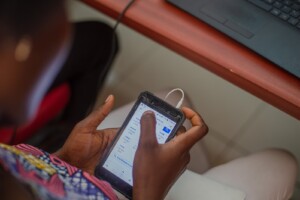‘Racism root of human rights violations in Sudan’
Racism is the primary cause of the atrocities committed in Darfur, the Nuba Mountains, and other areas of Sudan, according to prominent political analyst and journalist El Haj Warrag.
 Analyst, journalist, writer, and editor El Haj Warrag (File photo: Hurriyat)
Analyst, journalist, writer, and editor El Haj Warrag (File photo: Hurriyat)
Racism is the primary cause of the atrocities committed in Darfur, the Nuba Mountains, and other areas of Sudan, according to prominent political analyst and journalist El Haj Warrag.
On Thursday during a workshop concerning peace in Khartoum, Warrag warned that failure to eradicate such racist culture could lead to the repetition of these massacres in Sudan. The 1989 coup [which brought the Al Bashir regime to power] was only successful because of the existence of racism, he said.
He highlighted that the atrocities committed in areas of Shataya and Tawila in Darfur are deeply shocking and thus, they have to be thoroughly investigated and documented, as well as the human rights violations in Kadugli that occurred when the war erupted in South Kordofan on June 6, 2011, “when people took refuge at the premises of international peacekeeping forces, they were raided, driven out, and killed in a manner as brutal and heinous as the crimes of the June 3 sit-in massacre”.
Warrag stressed that these violations would not have reached this level without racism and dogmatism, and urged the Sudanese civil society to work hard to eliminate the cultural roots of racism that led to such crimes.
He confirmed a lack of retribution for victims of peaceful protests and massacres, pointing out that the conditions of the slain protectors, their families, and those injured must be followed up by a competent body.
He argued that following the Nazi atrocities during the Second World War, there was collective guilt [among the German people]. “The Sudanese should have such a collective feeling. Fortunately, the Islamic Front did not come to power through elections as Nazism did.”
Radio Dabanga’s editorial independence means that we can continue to provide factual updates about political developments to Sudanese and international actors, educate people about how to avoid outbreaks of infectious diseases, and provide a window to the world for those in all corners of Sudan. Support Radio Dabanga for as little as €2.50, the equivalent of a cup of coffee.












 and then
and then